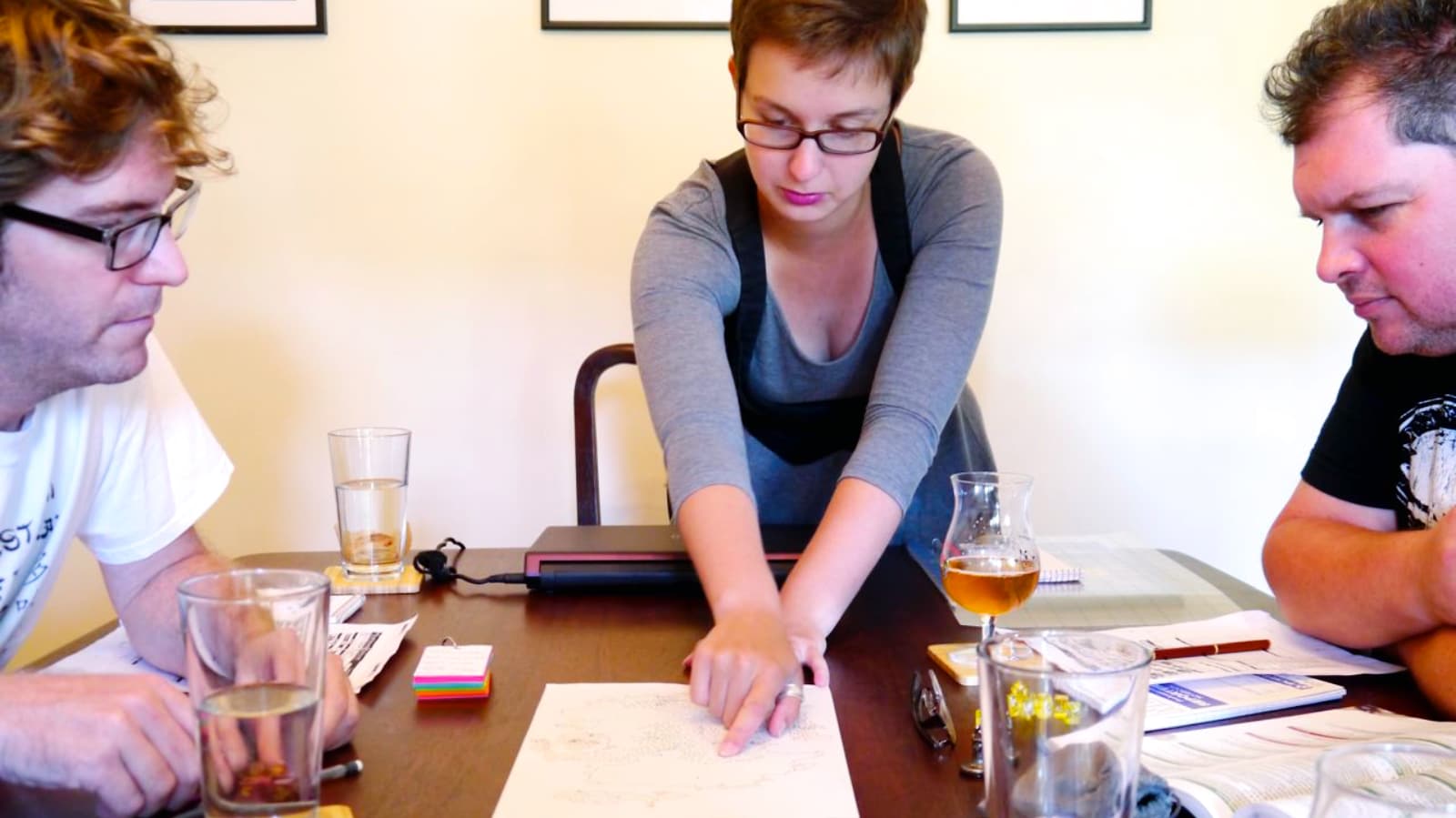Your First Session
Prepare to Play
Despite the insider lingo and strange dice, tabletop roleplaying isn’t rocket science. Every game has a core mechanic, which is how you decide whether a character’s action is successful or not. For example, in D&D you roll a 20-sided die and try to roll above a target number, but in Call of Cthulhu you roll two 10-sided die and try to roll below a target number. The rest of the rules help you construct a character and define how things work in the game world.

Here’s how to get ready for your first tabletop roleplaying game session:
- Read the rules. You don’t have to know all the details, but it’ll go much more smoothly for everyone if you’re familiar with the basic mechanics. If you don’t have access to the rules, ask your gamemaster to give you an overview before the game.
- Find an actual play video of the game you’ll be playing. Many of the games in the Find Games to Play section contain actual play videos, and a quick Google search can help you find more.
- Prep your online tools. Odds are you’re not playing in person, so you’ll want an online gaming setup that works for your group.
Play!
Have a Conversation
When you play a tabletop RPG, you’re having a conversation. The gamemaster gets the discussion moving by introducing a situation. The players ask the gamemaster questions that reveal more about what’s going on, then declare what they want their to characters do. Whenever a player wants their character to attempt something difficult, like disguising themselves as an evil henchman, firing a weapon, or sneaking past a guard, they roll dice to determine the outcome.
Embrace Challenges
The gamemaster’s job is to challenge the players and place their characters into dramatic and difficult situations. The players work together to overcome those obstacles. Sometimes they succeed and sometimes they don’t, which is part of what makes success so rewarding.
Make a Character That Stands Out
The most interesting characters have something that distinguishes them. Every character in your group should have a specific area of competence, something they’re particularly good at doing. Try to think of at least one other thing about the character that makes them immediately recognizable. It could be a physical feature, they way they talk, a favorite pastime, or something else. It doesn’t have to be anything complicated, but it will help you get into the character and can lead to fun interactions with the rest of the group and other characters in the game world.
Share the Stage
Because roleplaying is collaborative, it works best when everyone gets a chance to shine. If your character has been in the thick of the action for a while, be sure to let other players get their turn in the spotlight.
Keep Things Moving
As a player you can support the gamemaster by paying attention to the flow of the game. If your group is having trouble deciding on a course of action, help everyone come to agreement. If there’s a question about how to interpret a rule, let the gamemaster decide on an interpretation, and revisit it later after the session is over.
Have Fun
Tabletop roleplaying is really about people getting together and enjoying each other’s company. When you play a tabletop RPG you are engaged in collaborative storytelling, exercising your imagination, and sharing in something that’s unique and unscripted. If something doesn’t go your way, roll with it and remember that the people at the table are the key to a great game. For more comprehensive info, see Greg Stolze’s free How to Play Roleplaying Games (PDF).
For the First-Time Gamemaster
If you’re going to be running the game for your group, you’ll need to do some extra preparation to get ready for your first session. Be sure to check the Become A Gamemaster page for helpful tips.